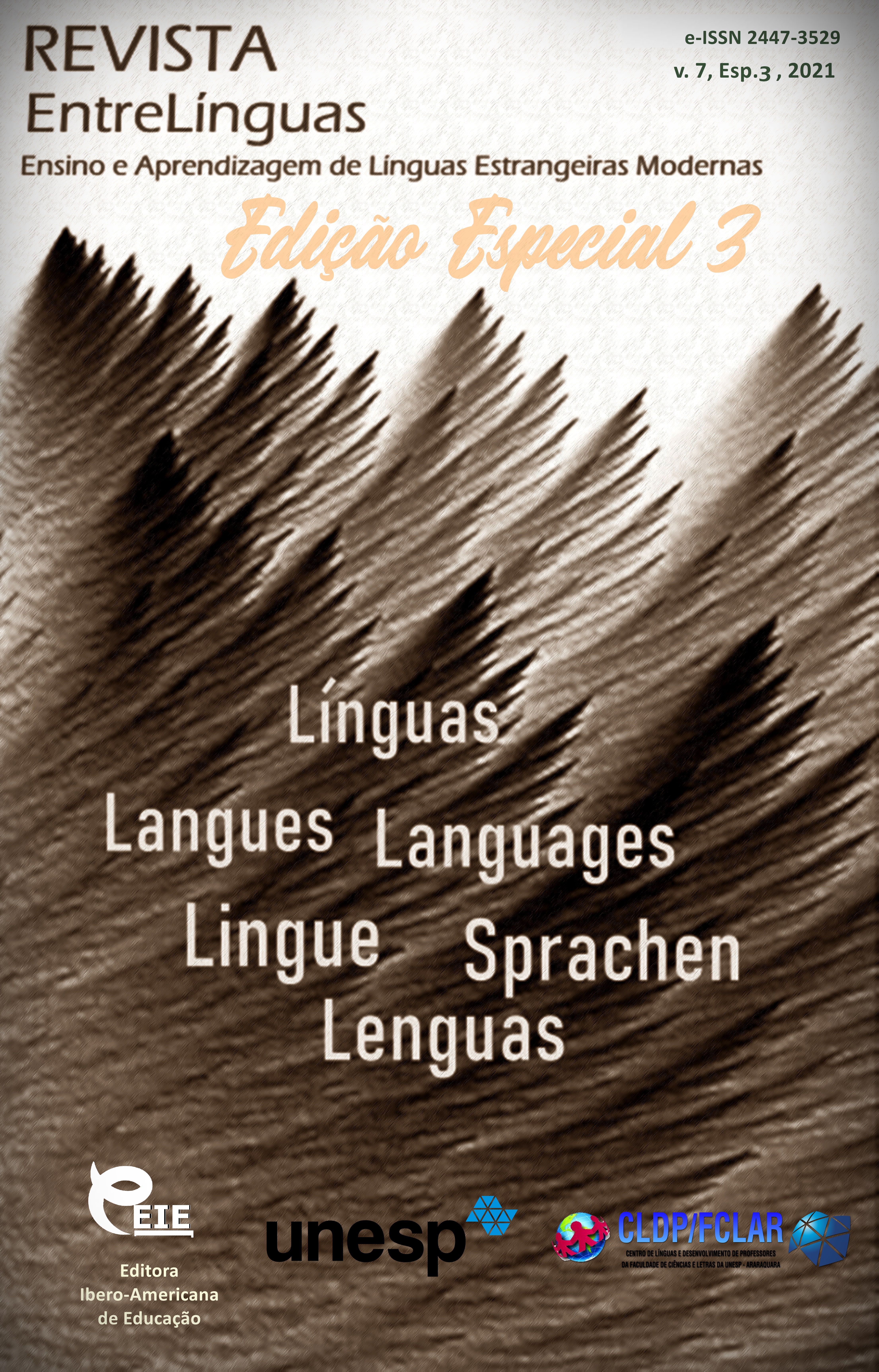Concepts of professional discourse as a process of communication between scientists in professional socialization
DOI:
https://doi.org/10.29051/el.v7iesp.3.15701Keywords:
Discourse, Model, Language, Profession, Function of language, ApproachAbstract
The concept "discourse" has appeared in connection with expansion of linguistic research out of offer limits - to the sphere of superphrase syntax. Therefore, the discourse from the linguistic point of view is the set consisting of a logical chain of offers which are in semantic communication. This article is devoted to a question of studying of a professional discourse. In the article the concept "professional discourse", among adjacent concepts, is described and defined. In this article the professional discourse, understood as communication of experts among themselves or with those who address them for receiving consultation or the professional help, is studied. Professional communication is opposed to nonprofessional. The discourse plays an important role in professional socialization which is the process by means of which people acquire the specialized knowledge, skills, the relations, norms and interests necessary for effective implementation of the professional roles. The professional discourse is the language created by professionals with special training to perform operations in a workplace. Some scientists consider that it is connected only with communication between the writer and the reader, both which are professionals. Others claim that, at least, one of the participants has to be a professional. For example, some scientists claim that one of the defining characteristics of a professional discourse is the importance of the status in which the person has a professional role and, therefore, higher status than the nonprofessional, that is the reason that the professional discourse usually takes place to be in establishment. Therefore, further in our work we will try to consider questions of a professional discourse in more detail. Articles of Russian and foreign scientists who are engaged in studying this problem will be considered and analyzed.
Downloads
References
ARUTYUNOVA, N. D. Discourse: linguistic encyclopedic dictionary. Moscow, 1990.
BAKLASHOVA, T. A; ABDULLINA, L. R. Text approach methodology in translators training (economic discourse) [La méthodologie d'approche du texte économique dans la formation des traducteurs]. XLinguae, v. 11, n. 1XL, p. 19-32, 2018.
BALABANOVA, I. Y. Value-oriented function of advertising texts (on the material of french and russian languages). Kazan Linguistic Jornal, v. 1, n. 3, p. 22-31, 2018.
BARON, N. Alphabet to email: how written english evolved and where it's heading. London: Routledge, 2000. 316 p.
EZHOVA, T. V. Linguistic features of a scientific discourse. Messenger of OGPU, v. 2, n. 58, 2011.
KOCHEMASOVA, D. R. The analysis of techniques and methods of studying of a discourse in linguistics: foreign languages in the modern world. St. Petersburg, 2016. p. 305-310.
NIKISHINA, S. R. et al. The word-formation category displacement causation: mutational and modification semantics of german, russian and tatar verbs. XLinguae, v. 12, n. 1, p. 21-36, 2019.
PALUTINA, O. G.; SABITOVA, V. E. Information representation in the court discourse. Kazan Linguistics Journal, v. 3, n. 2, p. 85-93, 2019.
SAVELYEVA, V. V. Art text and art world: correlation and organization. Almaty, 2002. 48 p.
VORONINA, E. B. Ways of word formation of names of the international brands. Bulletin of the Vyatka State Humanities University, v. 2, n. 3, p. 65-68, 2009.
Published
How to Cite
Issue
Section
License

This work is licensed under a Creative Commons Attribution-NonCommercial-ShareAlike 4.0 International License.
Os manuscritos aceitos e publicados são de propriedade da Revista EntreLínguas. Os artigos publicados e as referências citadas na Revista EntreLínguas são de inteira responsabilidade de seus autores.
Transferência de direitos autorais – autorização para publicação
Caso o artigo submetido seja aprovado para publicação, já fica acordado que o(s) autor(es) autoriza(m) a UNESP a reproduzi-lo e publicá-lo na EntreLínguas, entendendo-se os termos “reprodução” e “publicação” conforme definição respectivamente dos incisos VI e I do artigo 5° da Lei 9610/98. O artigo poderá ser acessado pela rede mundial de computadores (Internet), sendo permitidas, a título gratuito, a consulta e a reprodução de exemplar do artigo para uso próprio de quem a consulta, desde que haja a citação ao texto consultado. Essa autorização de publicação 328 EntreLínguas, Araraquara, v. 1, n .2, p. 323-328, jul./dez. 2015 não tem limitação de tempo, ficando a UNESP responsável pela manutenção da identificação do(s) autor(es) do artigo. Os artigos publicados e as referências citadas na Revista EntreLínguas são de inteira responsabilidade de seus autores.











